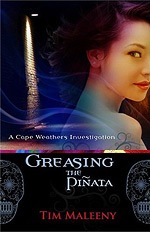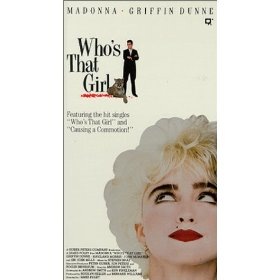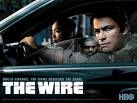by Tim Maleeny
Today TKZ is pleased to host author Tim Maleeny, whose Cape Weathers series not only has some of the coolest covers on the market, but also displays some of the best, funniest writing out there (think Chinatown meets Elmore Leonard). And for a feel of the real San Francisco, his books can’t be beat.
In the novel Downtown, a classic comedic thriller by Ed McBain, the hapless protagonist involved in the twisted storyline says glumly that it’s “a drug plot for sure.” It turns out to be much more than that, but the reference was an inside joke on the publishing industry, because at the time that novel was released, drugs were at the heart of every popular crime novel.
For the past few years vampires have been the drug of choice. The conventional wisdom has been, if you want to break into publishing, put a vampire in your book. Bookstore shelves are now crowded with romantic teen vampires, rural vampires, vampire detectives, gay vampires, bipolar vampires, vampire dentists, you name it.
Some of these books are great, others are pale imitations of the novels that paved the way. They got bought by publishers who believe that in our marketing-driven world, the nature of the subject is more important than the quality of the story.
Now there’s been a lot of buzz about Dan Brown’s forthcoming follow-up to The Da Vinci Code, which is understandable given the wager the publishing industry is placing on the success of this book. And it will be a success because “the machine” will make it one — the hype has already begun, and the marketing expenditures behind the launch will dwarf the promotional budgets of nearly a hundred other top sellers combined. So whether it’s the best book of the year or not, it certainly will be the biggest.
 And much like Michelle, I fall into the camp of writers who enjoyed The Da Vinci Code a lot, despite its flaws. The story worked, the subject matter was fascinating, and it cooked along. (And because I’m a blood relative to the Merovingians and have seen nude photos of John the Baptist on the internet, the story had a particularly deep resonance for me.)
And much like Michelle, I fall into the camp of writers who enjoyed The Da Vinci Code a lot, despite its flaws. The story worked, the subject matter was fascinating, and it cooked along. (And because I’m a blood relative to the Merovingians and have seen nude photos of John the Baptist on the internet, the story had a particularly deep resonance for me.)
But after all the code-copycats —in books and film — all the variations on a theme, the coming of the new book does feel a bit like the return of the vampires.
Which is funny, because before The Da Vinci Code, I understand it was damn near impossible to sell a mystery featuring art history, because the subject matter was perceived as too academic and boring. After The Da Vinci Code hit, countless authors were told by their publishers they had to work a conspiracy involving ancient art into their books. (A novel with a professor of art history who happens to be a Southern vampire would certainly have started a bidding war.)
The machine has become its own self-fulfilling prophecy. Rather than invest in new authors, the pressure from the chains has become so severe, and the margins so thin, that the plan is to bet on a sure thing. The marketing guys look for safe bets and proven brands. But as a marketing guy from way back, I can tell you there are no safe bets, and if you solve for the short-term, it often costs you big-time in the long run.
Sure, you can keep selling an existing franchise for a long time, no doubt about it. But at the end of that push, when the books start to feel predictable, the cost of that approach is reader fatigue, and beyond that, a slippery slope indeed.
This is what happened to the music industry before Napster and then iTunes came onto the scene and opened the floodgates, allowi ng us to rediscover our love of music instead of listening to only the Top 40 being pushed by the big labels. The industry almost collapsed under its own weight because it threw all its money at artists who already had a fan base waiting for their next record, or even worse, over-invested in artists who had clearly jumped the shark and weren’t putting out anything fresh.
ng us to rediscover our love of music instead of listening to only the Top 40 being pushed by the big labels. The industry almost collapsed under its own weight because it threw all its money at artists who already had a fan base waiting for their next record, or even worse, over-invested in artists who had clearly jumped the shark and weren’t putting out anything fresh.
The same thing happened in Hollywood before independent film put some control back into the hands of directors. Check out some of the bombs from the eighties and imagine them getting funded today, to the tune of hundreds of millions of dollars. Movies with plots so thin that any movie-goer in the country could have told the studios they were going to suck before a single scene was filmed.
If you talk to voracious readers, let alone other writers, they can tell which books to bet on, and if you listen carefully, you can tell which books have broad appeal and the potential to break out, if only the machine would get behind them. But with so much money at stake, in an industry of taste makers, are you really going to trust the readers, or, heaven forbid, the writers, when you can just sell the same thing you sold before.
 Same thing happened with TV, before cable tore down the walls protecting laugh-track sitcoms, canned plots and formulaic dramas. HBO broke all the rules and, to no one’s surprise except the big networks, it became a magnet for viewers starved for original programming.
Same thing happened with TV, before cable tore down the walls protecting laugh-track sitcoms, canned plots and formulaic dramas. HBO broke all the rules and, to no one’s surprise except the big networks, it became a magnet for viewers starved for original programming.
For some reason, all these so-called “entertainment” industries forgot that for something to be truly entertaining it has to be unexpected, fresh, something new.
Push the boundaries, twist a familiar story into a new shape, take me somewhere I’ve never been before. Only then will I come back, instead of putting down the book and turning to cable, powering up my computer, or playing a video game. There are too many options on my entertainment menu for me to just sit there and eat the same thing you’ve been serving again and again, because frankly it’s getting stale.
I am told by friends in publishing that zombies are the next vampires. I kid you not, one very talented writer I know was told to rewrite her book to include the walking dead, because “zombies are the next big thing.” Maybe so, but why can’t the next big thing be a great story, one I haven’t heard before. Maybe it features a zombie, but maybe the big thing after that doesn’t. Mix it up a little and see what happens.
Which is why I ask myself, whenever I walk into one of the big chains, does the next big thing have to come in waves? Because personally, I’m getting a little seasick.
Tim Maleeny is the bestselling author of Greasing The Piñata, which recently won The Lefty Award for best humorous mystery of 2008, and the forthcoming standalone novel Jump that Publishers Weekly called “a perfectly blended cocktail of escapism, with or without the beach towel.”
~~~~~~~~~~~~~~
Coming up on our Kill Zone Guest Sundays, watch for blogs from Sandra Brown, Steve Berry, Robert Liparulo, Paul Kemprecos, Linda Fairstein, Oline Cogdill, Alexandra Sokoloff, James Scott Bell, and more.

Tim, I’m noticing a trend. Nothing happend to the big boys (TV, Hollywood) until the upstart independents and cable nipped at their heels and produced a better alternative. (GM, Toyota, anyone?) So what’s the publishing equivalent of Fx?
In the meantime, I will stay focused on my art quilt historian zombie heroine with her vampire boyfriend.
Nice post, Tim. Thanks for dropping by. But I gotta tell you, this whole vampire thing has just sucked the life out of me.
Welcome, Tim. Great Blog. I guess every bandwagon fills up and turns into a wagon train, although its usually the driver people remember. Bram Stoker about said it all. I listened to The Historian, and stopped after about two CDs. For me, it was like watching blood dry.
I agree with you 100% Tim. However, I think that we, as consumers only help the machine along. They push, we buy. If only more people would say “Geeze, I’m getting so bored of this,” then maybe, just maybe when you walk into a chain you’ll see a larger selection of authors instead of numerous shelves and displays all dedicated to just the best seller lists.
So maybe a book about a zombie and a vampire who fall in love while chasing around the world trying to unveil a conspiracy involving masons, knights templar, art historians and Hollywood producers?
Tim~
Spot on brother. But as RJ says (and Gary Jules sings) “they only sell what you buy” is at play here. “Popular” fiction is fiction that many people buy – until they don’t. So folks gorged on the Templar Knights until they could take no more and then moved on – to vampires. And now, it seems zombies. So what’s an author to do? Try to guess what the next wave will be and try to catch it? Or just become the best surfer on the point so that the wave comes to them? Control what you can control. Write the best damn story you can and let mother ocean come to you if it’s meant to be.
Hi Tim, Welcome to TKZ. Great post!I’ve also pondered the depressing ebb and flow of waves and fads in the publishing industry and am holding out hope that the small independent presses may start making inroads and turning things around. I know at least the agents are telling writers not to write to the market but still it’s hard to remain true to your own vision when you get that ‘sinking’ feeling sometimes that yes, all you need is a highlander vampire with angst involved in a templar conspiracy across time to hit the big time.
Excellent post. I like some vampire books and egads some zombie books and art history books and I would not mind reading some that had all that. I like Scottish romance but wonder why so often Medieval romance seems to only be Scottish. I read a blog by an author who planned one set in Lithuania that never got written because of those pressures but I would have bought that book immediately just because it is DIFFERENT. In the thriller and suspense and even mystery field, I admit I am sick and tired of how almost always the main character becomes the target of the killer. I suppose now thrills mean that but why can’t a book be really suspenseful without that? I know it was not always that way and some of the best suspense and mysteries I have read in days of old did not follow that pattern.
The problem also seems to eeking down into the review world, in my opinion. Ideally, there should be space for readers and reviewers to praise intriguing books that break out of the box. But often it seems that being a top reviewer on Amazon or all these big places is more about whether one’s taste is aligned with the mass public opinion rather than whether the reviewer reads well. Newspaper reviews used to actually guide readers into new territories with thoughtful comments that actually enriched reading for the reader. Now with the advent of all these chains and their review systems, it seems being a good reviewer seems more about reducing a book to a number (an absurd notion in and of itself) that magically corresponds to the taste of the masses. Personally I prefer to read books that take me into new territory and reviews that are more than a number. Even reviewers are encouraged to read only one genre or sub-genre but some readers like to experiment or are not so easily pigeon-holed. Hopefully, the advent of small bookstores, small publishers and small review sites will help this tendency towards amalgamation into meaninglessness.
Zombies? I thought it was cats, a la Dewey. So maybe the Next Big Thing will be Zombie Cats. That kind of has a ring to it, doesn’t it? Anyway, great post, Tim!
Ok. This question has been bugging me as I am heading towards publication in the near future myself. I want to make sure I stay in the game once I get on board.
So I worked on my time machine a bit over the weekend. The Fifi experiment was tragic, and quite messy but I think I got it right this time. Not wanting to risk it myself so I gave my cousin Leonard ten bucks and a promise of a six pack on his return. Wearing a bicycle helmet with a digital video camera attached I flung him into the vortex to find out what books will be popular over the next fifteen years.
The time machine door opened, and Leonard looked up. Some huge muscular guy dressed in a full body blue leotard turned around and stared at him.
Leonard stuttered a bit then finally blurted out, “Basil wants to know what kind of books do you guys like in the year 2019?”
To which the guy replied in a thick German accent, “GAAAAAAA!”
Then he punched Leonard in the face and ran away. A bunch of people in red leotards came chasing after the blue guy. Leonard didn’t want to get hit again.
He scuttled backwards, tripped over the pilot’s seat. His hand smacked the “go” button. The door shut and seconds later he was back in my garage.
So the trip did not answer my question in any significant way. Apparently, though, books based on ‘Running Man’ will not be too popular.
So…I guess I’ll need to rewrite that manuscript.
Oh yeah, and for some reason Leonard drank the whole six-pack in one go. Go figure.
And it the good stuff too.
…PBR
Great post, Tim! Lots of food for thought (and I swear, I’m not thinking of flesh-eating zombies, here)…
Hear, hear, Tim.
Fascinating post, Tim.
And then there’s the challenges of those who are ahead of the “next Big thing” curve…
Maryelizabeth
Reading ZOMBIE COP
http://mg.booksense.com/NASApp/store/Product?s=showproduct&isbn=9781607060239
“zombies are the next big thing”That seems to be the prevailing sentiment from the publishing world … at least when I look at the book shelves, I get that feeling.
What’s odd and fascinating to me though, is the idea an editor or agent would call for a zombie to be tacked-on to a finished novel, simply to capitalize on a fad. It’s like an “American Idol” mentality or something.